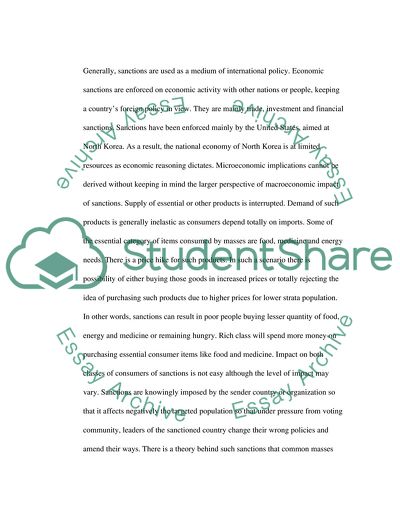Cite this document
(Microeconomic Implications of the Sanctions Emplaced on North Korea Case Study, n.d.)
Microeconomic Implications of the Sanctions Emplaced on North Korea Case Study. Retrieved from https://studentshare.org/macro-microeconomics/1710057-microeconomic-implications-of-the-sanctions-emplaced-on-north-korea
Microeconomic Implications of the Sanctions Emplaced on North Korea Case Study. Retrieved from https://studentshare.org/macro-microeconomics/1710057-microeconomic-implications-of-the-sanctions-emplaced-on-north-korea
(Microeconomic Implications of the Sanctions Emplaced on North Korea Case Study)
Microeconomic Implications of the Sanctions Emplaced on North Korea Case Study. https://studentshare.org/macro-microeconomics/1710057-microeconomic-implications-of-the-sanctions-emplaced-on-north-korea.
Microeconomic Implications of the Sanctions Emplaced on North Korea Case Study. https://studentshare.org/macro-microeconomics/1710057-microeconomic-implications-of-the-sanctions-emplaced-on-north-korea.
“Microeconomic Implications of the Sanctions Emplaced on North Korea Case Study”. https://studentshare.org/macro-microeconomics/1710057-microeconomic-implications-of-the-sanctions-emplaced-on-north-korea.


